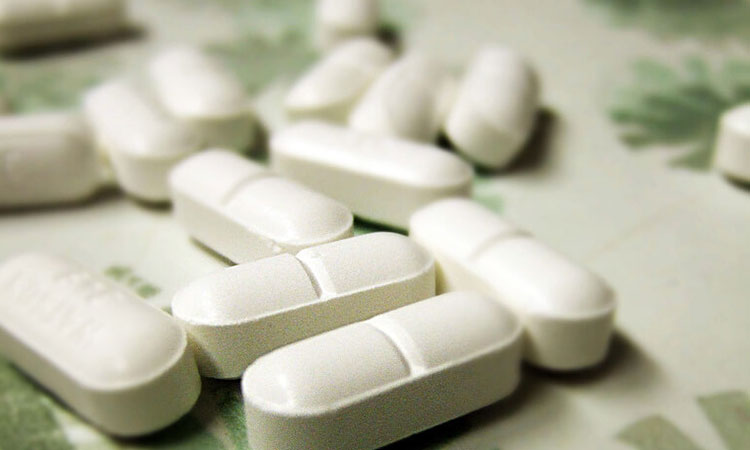
Vicodin is a prescription painkiller used to treat moderate pain that also acts as a central nervous system (CNS) depressant. Tablets contain a combination of acetaminophen (i.e. Tylenol) and hydrocodone, a synthetic opioid that is the main contributor to Vicodin’s analgesic effects.
Vicodin is prescribed as a tablet for oral use, but when used for nonmedical purposes, it can be crushed into a powder form, and the product is then snorted via the nasal passage.
Tolerance, Dependency, and Addiction
Vicodin, like all opioids, has a high potential for misuse, dependency, and overdose. It’s psychoactive properties impact a number of neurotransmitters in the brain such as dopamine that produce euphoria and feelings of reward. For Vicodin users, nasal delivery offers the additional benefit of a more intense, rapid transit and absorption into the brain, where this action essentially becomes the catalyst for the drug’s potential for dependency.
Signs and symptoms of Vicodin addiction include, but are not limited to the following:
- Continued drug use despite undesirable physical and psychological effects.
- Loss of interest or enjoyment in activities and interests once considered important.
- The use of Vicodin in dangerous or improper situations.
- Negative changes or problems in other areas of life such as work, school, relationships, and financial status.
- General malaise, lethargy, or sedation.
When Vicodin is misused regularly, dependency and tolerance begin to develop. As tolerance increases, the user feels compelled to use higher, more frequent quantities of the drug in an effort to achieve the “high” they are used to experiencing.
Over time, the user’s nervous system becomes increasingly comprised and unable to function appropriately without the drug. Then, user efforts to reduce drug use or to quit altogether produce highly unpleasant mental and physical side effects known as withdrawal symptoms.
Withdrawal symptoms can persist for several days, their severity dependent upon factors related to the person’s level of addiction and frequency/duration of use.
Symptoms of Vicodin withdrawal may include but are not limited to the following:
- Irritability and mood swings
- Anxiety and depression
- Confusion
- Appetite changes
- Tremors
- Enlarged pupils
- Nausea and vomiting
- Sweating/chills and shivering
- Diarrhea
- Rapid breathing
- Muscle aches and pains
- Sleep disturbances
- Cold-like symptoms include runny/stuffy nose and fever
Because of the rapid delivery of an intranasal dose and its absorption into the mucous membrane, the risk of addiction and overdose may be significantly higher.
In addition to dependency and an increased risk of overdose, snorting Vicodin can result in serious infections and damage to the nasal septum and associated tissues.
Other possible side effects and dangers of snorting Vicodin include:
- Drowsiness/heavy sedation
- Dizziness
- Blurred vision
- Hypotension (low blood pressure)
- Muscle fatigue
- Heartburn
- Nausea and vomiting
- Changes in appetite
- Constipation
- Skin rash
Snorting Vicodin and Overdose
Snorting Vicodin, especially in combination with other drugs or alcohol can lead to life-threatening central nervous depression, overdose, and death.
Symptoms of a Vicodin overdose include:
- Vomiting
- Lightheadedness/dizziness
- Restricted pupils
- Low blood pressure (hypotension)
- Pale skin, blue color to lips and nails
- Limp body and cold, clammy skin
- Unresponsiveness
- Unconsciousness
- Extremely slow, labored respiration or breathing stopped altogether
- Seizures
- Extremely slow heart rate
- Coma
- Death
Getting Help – From Detox to Addiction Treatment and Beyond
Although Vicodin misuse can lead to a variety of adverse effects, many who abuse prescription drugs such as Vicodin minimize the seriousness of their disease. Refusing help can be life-threatening and seeking treatment in any phase of dependency is essential to long-term recovery.
Detox
Professional treatment for Vicodin use disorder begins with our detox program, a medically-supervised process in which the patient is monitored around-the-clock and withdrawal symptoms are addressed through the use of medication-assisted therapy (MAT).
MAT uses pharmaceutical drugs indicated for the treatment of opioid use disorders, such as methadone and suboxone. These medications can significantly reduce cravings and ease withdrawal symptoms throughout the detox and withdrawal process.
Upon discharge, patients are compelled to accept admission to one of our structured addiction treatment programs, which include residential (inpatient) stay and intensive outpatient therapy (IOP).
Treatment for Vicodin Addiction
Individuals who opt for an inpatient stay reside in our residential center 24/7 for a recommended minimum of 30 days. Those who need more flexibility due to work, school, or family responsibilities can choose outpatient treatment. IOP requires the attendance of several sessions per week, but the patient is allowed to live independently in a sober living environment or personal household.
Getting More Information
We provide a comprehensive, holistic method to treatment, encompassing a wide array of different evidence-based practices in combination. All of Midwood Addiction Treatment’s primary therapists are either licensed or master’s level clinicians; our programs are structured with various components of evidence-based treatment practices and holistic approaches to treatment that provide our patients with the knowledge and tools they need to be successful in their recovery.
If you or your loved one is suffering from substance abuse, please seek help as soon as possible.